20 Benefits Of Chia Seeds, How To Use, Recipes, & Side Effects
Keep your sugar levels in check and combat depression with these nutritious seeds.
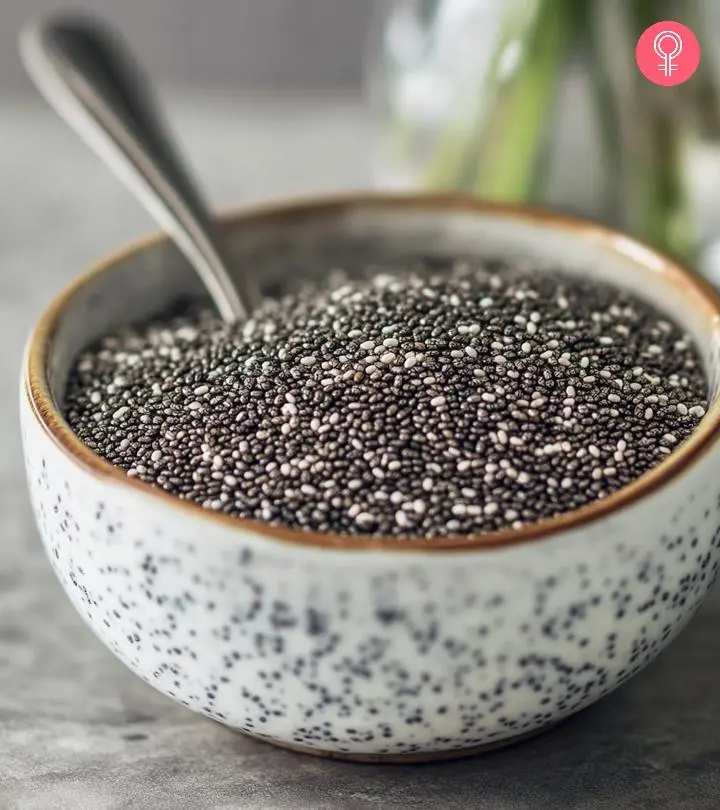
Image: Midjourney/ StyleCraze Design Team
The health benefits of chia seeds have made people consider them a superfood.Chia seeds are packed with essential omega-3 fatty acids, dietary fiber, protein, antioxidants, and minerals such as calcium.
These nutrients give it a range of benefits, such as boosting weight loss to controlling blood sugar levels. They also support bone and tooth health, boost metabolism, and reduce inflammation.
This article discusses the benefits of chia seeds, their nutritional profile, how to use them for maximum benefits, and any potential side effects. Take a look.
 Know Your Ingredient: Chia Seeds
Know Your Ingredient: Chia SeedsWhat Is It?
It is a tiny black or white seed from the Salvia hispanica plant, which is native to Mexico and Guatemala.
What Are Its Benefits?
Chia seed is high in dietary fiber, which can aid digestion and promote bowel regularity. The protein and healthy fats in it promote satiety and reduce appetite.
Who Can Use It?
It can be consumed by most people, except individuals with low blood pressure or a history of blood clotting disorders.
How Often?
It is safe to consume chia seeds on a daily basis as a part of a balanced diet.
Caution
The possibility of choking may be higher when eating too many chia seeds. You may want to avoid them if you are allergic to sesame or mustard seeds.
In This Article
What Are Chia Seeds?
Scientifically known as Salvia hispanica, chia seeds are considered to be one of the few superfoods nature has bestowed upon us. Originating in Mexico, and dating back to the Mayan and Aztec cultures, these seeds are known for their richness in omega-3 fatty acids, fiber, protein, antioxidants, and calcium. They also act as a natural laxative.
It is believed that Aztec warriors consumed chia seeds for endurance. According to popular legend, one spoonful of chia seeds could sustain them for 24 hours.
In the Mayan language, ‘chia’ means strength. The seeds are an unprocessed, whole-grain food that are absorbed by the body as seeds (1). Though originally used as equine feed, the benefits are found to extend to humans as well.

Chia seeds are often confused with basil seeds (we will look at the differences later), and there is speculation as to which type is called sabja. So, what is the taste of chia seeds? Well, chia seeds usually taste like alfalfa sprouts.
In the recent times, research has found the benefits of chia seeds to be far greater than what anyone knew – which is precisely what we will see as we go ahead. And by the way, chia seeds can be good for your pets too. It is also easier to store. It doesn’t have any specific taste or smell for your pet to turn its nose up at. The dosage would be ¼ of chia seeds for every 4.5 kilos of your pet’s body weight.
 Trivia
TriviaThis was about what are chia seeds good for, now you will learn are chia seeds healthy.
Key Takeaways
- These nutrition-packed edible seeds, known as chia seeds contain essential omega-3 fatty acids, fiber, protein, and minerals such as calcium in impressive quantities.
- Regular consumption of chia seeds promotes optimal weight management, heart health, improved digestion, and healthy skin.
- Twenty grams of chia seeds can be taken regularly, twice a day.
- In some people, chia seeds can initially lead to constipation, hard stools, and bloating
Chia Seed Facts
- Chia, being a member of the mint family, is safe from insects. This is because insects don’t like mint, and hence, the plant can be grown without the use of pesticides.
- Chia seeds had such great reputation amongst the Aztecs that they even used it as currency.
- The chia seed plant is very temperamental and needs specific growing conditions. Hence, it is grown between 23 degrees north and 23 degrees south latitude.
- Chia was discovered by Dr. Wayne Caotes in the 1990s, when he led a project in Argentina in search of cash crops that could benefit the farmers in the area.
- The flowers of chia seeds are purple and white.
Why Are Chia Seeds Good For You?
First, chia seeds are rich in omega-3 fatty acids. Consuming chia seeds is probably the easiest way to intake these healthy fatty acids. Yes, we have flaxseeds or salmon that are good sources of omega-3s, but it’s all about the ease of intaking. You don’t have to grind or cook the chia seeds. One serving of chia seeds contains 5 grams of omega-3 fatty acids (2).
Secondly, they contain soluble fiber. Simply get the chia seeds a little wet, and you will see them turning into a gel – which is the soluble fiber. The benefits of soluble fiber are many – it helps manage blood sugar, feeds the gut-friendly bacteria, and even bulks up the stool (3). A single serving of chia seeds meets almost a third of your daily fiber requirement.
Alicia ‘Chacha’ Miller, MS, RD, LDN, says, “Chia seeds are packed with nutrients that support general health and wellness at all life stages, with unique advantages for specific groups. For children, they’re an excellent source of fiber and omega-3s, promoting healthy digestion and brain development. For women and birthing individuals, especially during pregnancy and postpartum, chia seeds are a good source of plant-based protein that help meet increased needs for calcium, magnesium, and hydration. Their high fiber content can also assist in balancing blood sugar levels and supporting gut health, making them beneficial for individuals managing gestational diabetes or hormonal imbalances.”
Chia seed uses include a variety of recipes; it even serves as a vegan substitute for eggs. If you have bone issues, you can swear by chia seeds. A high content of calcium, phosphorous, and manganese make them good for the bones.
Chia Seeds Nutrition Facts
100 grams of these seeds contain about 485 calories, 31 grams of fat and 42 grams of carbohydrates. The seeds also contain 18 of the 22 amino acids – and all of the 9 essential amino acids namely lysine, leucine, isoleucine, methionine, threonine, tryptophan, phenylalanine, valine, and histadine. One serving of chia seeds equals 28 g. The nutritional values are based on one single serving of chia seeds.
Nutrient | Adequate Intake |
| Dietary fiber | 10.6 g (42% of daily value) |
| Protein | 4.4 g (9% of daily value) |
| Calcium | 17 mg (18% of daily value) |
| Manganese | 0.6 g (30% of daily value) |
| Phosphorous | 265 mg (27% of daily value) |
| Potassium | 44.8 mg (1% of daily value) |
| Sodium | 5.3 mg |
| Zinc | 1 mg (7% of daily value) |
| Copper | 0.1 mg (3% of daily value) |
| Total omega-3 fatty acids | 4915 mg |
| Total omega-6 fatty acids | 1620 mg |
Health Benefits Of Chia Seeds
1. Stimulate Weight Loss

The numerous benefits of chia seeds include promoting heart health, supporting digestion, and, of course, helping manage weight effectively. Weight loss is probably the number one reason most people do what they do. In fact, it is a multi-billion dollar industry. And if you are looking to lose weight, chia seeds could be one the first options you can consider.
Of course, no single food can aid weight loss or cause weight gain. It all depends on our food habits and lifestyle. However, what makes chia seeds a good weight loss food is the excellent fiber content. A normal intake of chia seeds a day, which amounts to 25 to 38 grams a day, can go a long way in helping you shed those kilos. The seeds are also found to reduce belly fat.
Wondering how to prepare chia seeds for weight loss? It’s simple. Just add two tablespoons of raw or whole chia seeds into a glass of water. Stir well. After allowing the mixture to settle (for a few minutes), drink them quick before they get swollen due to water absorption.
Fiber in chia seeds also helps you feel full for longer periods of time. It promotes satiety. The seeds absorb water in the stomach and then expand, thereby suppressing your appetite (4). This can eventually lead to weight loss.
A study published in the journal Nutrition Research and Practice explored the impact of chia seeds on short-term hunger and food intake. In this randomized controlled trial, 24 participants consumed yogurt with either no chia seeds, 7 g of chia seeds, or 14 g of chia seeds on separate test days. Results showed that adding chia seeds significantly increased satiety and reduced hunger, the desire for sugary foods, and the amount of food they consumed. Additionally, participants who consumed chia seeds with yogurt ate less food during lunch (4). Thus, we see that consuming chia seeds can help with portion control and can eventually lead to weight loss.
As per a Brazilian study, chia seeds play a role in fat reduction (5). Chia seeds are also rich in protein, which also has been found to promote satiety and weight loss (6).
2. Rich In Omega-3 Fatty Acids
As discussed, chia seeds are one of the few types of seeds that are an excellent source of omega-3 fatty acids (2).
3. Prevent Constipation
Since they are packed with fiber, especially insoluble fiber, chia seeds turn into a gel when they come in contact with water. This adds to your stool and aids bowel movements, thereby relieving constipation (7). Fiber also has been found to improve digestion.
4. Regulate Blood Sugar Levels And Help Prevent Diabetes
Chia’s ability to slow down digestion can be linked to diabetes prevention. The gelatinous coating chia seeds develop can also prevent spikes in the blood sugar levels (8).
According to the United States Department of Agriculture, chia is one of those foods considered to be useful in diabetes treatment. The seeds were also found to improve the blood pressure levels in diabetics (9).
Another reason chia can be good for diabetics is the presence of omega-3 fatty acids that are known to be nutritionally important for the treatment of the disease (10).
5. Fight Breast Cancer And Other Forms Of Cancer
As per a report published by the UCSF Medical Center, chia seeds are a good source of alpha-linoleic acid, which can help prevent breast cancer (11). The same goes for omega-3 fatty acids.
6. Supports Healthy Blood Lipid Levels
The omega-3 fatty acids get the credit, again. These fatty acids help lower blood cholesterol and prevent coronary heart disease in the process (12). The monounsaturated fats in chia seeds help lower the cholesterol levels. The Academy of Nutrition and Dietetics also states that adding chia seeds to the diet can keep a check on the cholesterol levels (13).
Chia seeds, as part of a heart-healthy diet and lifestyle, can enhance heart health and prevent heart-related ailments (14).
The omega-3s also reduce triglycerides, a type of fat in the blood. In addition, they reduce the risk of irregular heartbeat, lower blood pressure, and slow down the accumulation of arterial plaque (15).
Chia seeds were also found to treat dyslipidemia, a metabolic disorder where there is an abnormal amount of cholesterol in the blood (16). In another Argentine study, the alpha-linoleic acid in chia seeds had improved the condition of rats suffering from dyslipidemia (17). In addition to treating dyslipidemia, chia seeds were also found to increase the levels of HDL or good cholesterol.
7. Boost Energy And Metabolism
Chia seeds are packed with B vitamins, zinc, iron, and magnesium – all of which help boost energy. You can add the seeds to your favorite smoothie and enjoy a refreshing burst of energy. Chia seeds can also boost your metabolism (18).
A blogger shared his experience of eating 8 tablespoons of chia seeds for 40 days with a healthy diet and shared his results. He said, “While eating 8 TBSP didn’t give me consistent Energizer Bunny-like endurance, I did notice a significant reduction in the rest needed between activities. It became easier for me to workout immediately after returning home from running errands all day (i).”
8. Can Be Used As A Workout Drink
Workouts can get tiring at times. But with chia seeds, that shouldn’t be a problem anymore. Given the amount of omega-3s they contain, chia seeds can be used for sustaining energy.
Taking chia seeds a few hours before an intense workout can provide fuel to the body after the carbs burn off. Chia seeds, when taken after working out, can provide protein that helps repair tissues.
 Fun Fact
Fun FactThe Tarahumara tribe from Mexico is well-known for its runners who drink Iskiate for strength. Iskiate is a drink made with chia seeds, water, and lemon juice.
9. Packed With Protein
We don’t have to discuss the importance of protein, do we? Chia seeds are a great source of protein. As per a Brazilian study, chia seeds had shown great protein quality (19). They also had improved the lipid profiles (cholesterol levels, basically) in rats.
Chia seeds contain 19% protein. And according to the American Journal of Clinical Nutrition, a high-protein diet can reduce hunger and encourage satiety (20). The seeds contain high-quality protein with all the necessary amino acids (21).
10. Enhance Mood
Chia, considered a superfood, is believed to enhance your mood upon regular consumption. As per a Pittsburgh study, omega-3 fatty acids are associated with improved mood and behavior (22). Consuming chia seeds might also help you combat depression.
11. Rich In Antioxidants
We all know how important antioxidants are. And chia seeds have them in abundance. The antioxidants are not only good for the cells, but for the skin as well – as they help slow down the signs of aging (23). The antioxidants in chia seeds have also been found to reduce the risk of cancer and heart disease. A high antioxidant content is what makes chia seeds more shelf-stable than other seeds.
A study published in the journal Food Research International investigated how chia seeds and chia oil impact oxidative stress and antioxidant status in obese rats. Researchers divided 36 Wistar rats into six groups, with some receiving a high-fat and high-fructose (HFF) diet alone and others supplemented with chia seeds or chia oil for either 6 or 12 weeks. The HFF diet led to weight gain and increased oxidative stress. However, rats that consumed chia seeds or chia oil showed improved antioxidant activity in their bodies, including increased levels of glutathione and enhanced antioxidant enzyme functions. Both chia seeds and oil exhibited comparable antioxidant effects, demonstrating their potential to reduce oxidative stress and support better health in obesity-related conditions (24).
From one study, the antioxidant potential of chia seeds is similar to that of hazelnuts. In general, the antioxidant potential in biological systems is measured in ORAC (oxygen radical absorbance capacity) values. The ORAC values of different foods are given in the graph below.
Antioxidant Activity Of Selected Foods
Source: The Chemical Composition and Nutritional Value of Chia Seeds—Current State of Knowledge12. Good For Bones And Teeth
One study has shown that increased consumption of calcium-rich foods, like chia seeds, can improve skeletal health (25). Consumption of chia seeds is also considered an effective way to improve calcium intake (26).
In addition to calcium, chia seeds are also rich in manganese – both of which are crucial for maintaining strong bones and teeth (2).
Chia seeds are also rich in phosphorus, a mineral that has been found to enhance bone health (27). The presence of antioxidants in chia seeds can also protect your teeth from damage (28).
13. Can Improve Skin Health

The omega-3 fatty acids in chia seeds have been found to increase circulation and reduce dryness and skin inflammation. And as per a Manchester study, omega-3s help protect the skin from UV radiation (29). The seeds may also help reduce skin sagging and may improve overall skin health. Additionally, people also use chia seed oil for skin and it is gaining popularity for its ability to hydrate deeply and provide a natural barrier against environmental stressors.
Apart from that, chia seeds contain anti-inflammatory properties that could help prevent arthritisi Chronic joint inflammation resulting in pain and stiffness in one or more joints, which worsens with age. (30).
14. Help Treat Diverticulosis
Diverticulosis is the presence of tube-like structures in the intestine with no signs of inflammation. Chia seeds, simply because they are vegetarian and rich in omega-3s, are found to help prevent diverticular disease (2).
Lack of fiber has also been linked to diverticulosis – and chia seeds, being an excellent source of fiber, can help treat this condition (31). They absorb the water in the colon and smoothen the bowel movements.
15. Can Be Used As A Substitute For Eggs
If you think you want protein but don’t take eggs, you have some good news! You can use chia seeds as a substitute for eggs.
The process is simple. All you need are a tablespoon of chia seeds and 3 tablespoons of water. Ground the chia seeds, and then mix them with water in a small bowl. Keep it aside for 5 minutes, post which the mixture takes on a gooey consistency – similar to raw egg yolk. You can add this to your dishes and enjoy the goodness of high-quality protein.
16. Have Anti-Inflammatory Properties
One of the key chia seeds benefits is their ability to reduce inflammation and support overall well-being, as evidenced by scientific research. The presence of omega-3 fatty acids, fiber, and protein makes chia seeds one of the best anti-inflammatory foods out there (32). The anti-inflammatory properties of chia seeds can also aid in the treatment of arthritis (30).
17. Are Gluten-Free
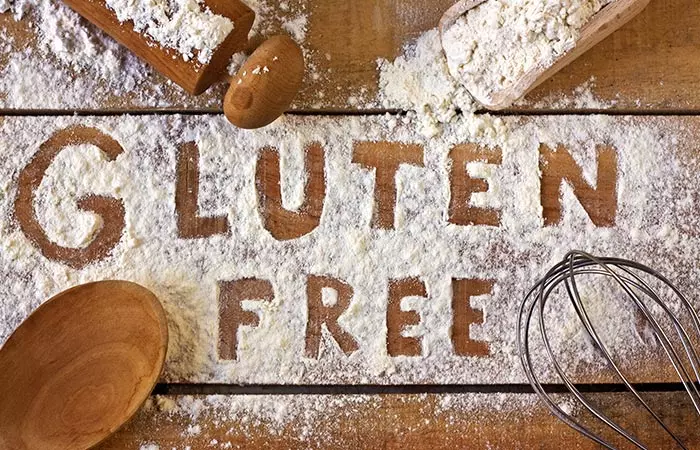
Gluten is the protein present in cereal grains, especially wheat, and is responsible for the elastic texture of dough. In certain individuals, gluten is known to cause allergies and gluten intolerance. However, with chia seeds, it’s a different scenario. It is 100% gluten-free.
It is particularly helpful in gluten-free baking. Chia seeds are especially beneficial for individuals suffering from celiac diseasei An autoimmune disorder triggered by gluten consumption, a protein that causes inflammation and impairs nutrient absorption. . As per studies, people with celiac disease tend to consume less calcium and fiber than recommended – and chia seeds, being rich in these two nutrients, can bridge the gap.
18. Rich In Manganese
In addition to numerous other nutrients, chia seeds are also rich in manganese (33). Manganese might help in the treatment of arthritis, diabetes, and epilepsyi Central nervous system disorder characterized by seizures, unconsciousness, or odd behavior due to brain activity fluctuations. . Manganese also has excellent antioxidant properties. It improves metabolism and accelerates wound healing (34).
19. Rich In Magnesium
One serving of chia seeds contains 30% of the RDA of magnesium. The mineral has several benefits – a few of them include treatment of hypertensioni High blood pressure; where the blood exerts too much force on the artery walls; blood pressure measures over 140/90. and heart disease, osteoporosisi A bone disorder due to alterations in bone composition or structure or a decline in bone mass and bone mineral density. , and type 2 diabetes (35).
Magnesium also helps in the production of energy in the body, and a lack of it can cause fatigue, insomnia, irritability, and poor memory (34).
20. Improve Sleep
There are two hormones that are essential for sleep – serotonin and melatonin. These two hormones are produced by tryptophan, an amino acid in the body. Chia seeds, being high in tryptophan, aid good sleep and relaxation (35). According to an American study, tryptophan is also used for treating numerous sleep disorders (36).
Kiran Campbell, Registered Dietitian, says, “It is safe to drink chia seeds before bed as they may help improve sleep quality. The amino acid breakdown of chia seeds shows that they contain small amounts of tryptophan, an amino acid that functions as a precursor to the production of two hormones essential to sleep, serotonin and melatonin. One systematic review shows that ALA, which is present in chia seeds, may help alleviate post-menopausal symptoms including headache, hot flashes, and insomnia.”
We have seen the many health benefits of chia seeds. But chia seeds work great for pregnant women as well. Wondering how? Keep reading!
How Much Chia Seeds Per Day?
Usually, you can take 20 grams of chia seeds (1 ½ tablespoons) twice a day. You can add the seeds to your food or snack and enjoy – and when you do that, believe me, you will be blessed with the following benefits.
Campbell says, “Studies show that consuming up to 50 g of chia seeds daily can act as a good supplement to your daily diet. One to two servings per day is a good starting point for chia seed consumption. They are very high in fiber, so if you are not used to eating much fiber, it’s best to start with a small amount to prevent GI distress.”
What we have seen is just the tip of the iceberg (or probably not even that). What we are going to see next is the real deal – the numerous benefits of chia seeds you would have never known before.
Where To Buy Chia Seeds
Ideally, you can buy chia seeds from any organic store. But, ensure you buy whole instead of ground chia seeds. Chemical-free or organic chia seeds are the best, which are marketed by reputed companies.
How do you store chia seeds? Storing them is pretty simple. You can store chia seeds in a plastic or glass container with a tight lid. Store the container in a refrigerator to keep the fats from getting rancid. This is very important.
Till now, we have seen what chia seeds are good for. Now, let’s see the other side of chia seeds, which is equally important.
How To Eat Chia Seeds
There are three common ways of incorporating chia seeds into your diet. Let’s discuss each:
1. Soaked Form
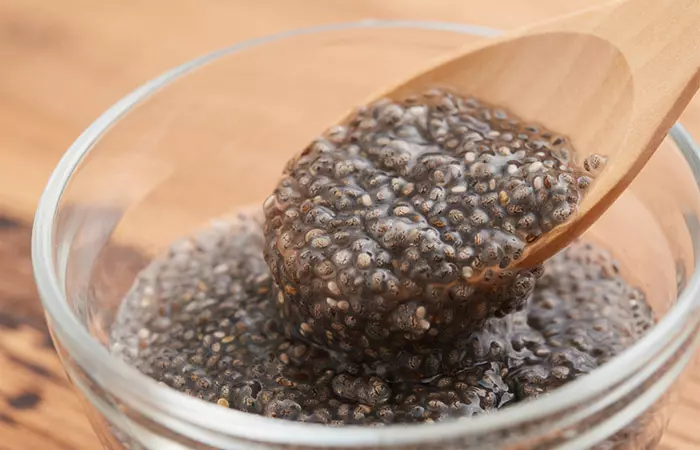
You can soak chia seeds in water overnight as this maximizes the benefits. Campbell adds, “Chia seeds can be mixed in any type of liquid, such as juice, tea, water, milk, or milk alternatives. The seeds will form a gel in any liquid of your choosing if given enough time.”
Soaked chia seeds turn into chia gel, which can be added to your smoothies or protein shakes as a base. This creates a gluey effect and aids digestion while maintaining hydration. Soaked chia seeds are also easily absorbed by your body.
Campbell adds, “You can most definitely drink chia seeds every day. Many recipes are available that use chia seeds in pudding form, so if you choose to drink them, make sure to use an adequate amount of liquid to thin it out. After adding a serving of chia seeds, make sure to wait at least 20 minutes for the chia seeds to absorb the liquid. ”
If you are in a hurry, you can simply swish the seeds and water in a jar (with the lid closed, obviously) for about 5 minutes. Let it sit for about 10 minutes, and you will see a gel-like consistency.
2. Powdered Form
You can also grind the seeds into fine powder. You can use this method if you want to use the seeds as a thickener. Wondering, how do you grind chia seeds? Grinding chia seeds is simple – you can use a coffee grinder. But, ensure you grind some rice first so that the grinder is clean, and the chia seeds don’t get the smell of coffee.
After grinding, simply mix the chia seed powder with your favorite pudding or dish and have it.
3. The Whole Seeds
If you are wondering how to use chia seeds to get the best results, the simplest way is to mix chia seeds in yogurt and have it for breakfast. You can also add the seeds to a smoothie.
You can sprinkle the seeds on other foods to keep them crunchy.
You can also add chia seeds to soups or sauces to thicken them. And oatmeal as well – they thicken a bowl of oatmeal and also add additional fiber.
The uses of chia seeds are diverse and abundant, ranging from smoothies to healthy desserts. So, how about a couple of recipes with chia seeds? These help you enjoy the benefits of chia seeds in the best way possible.
Chia Seed Recipes
1. White Chia Seed Pudding
Ingredients
- 1/3 cup of white chia seeds
- 1 1/2 cups of milk
- 2 tablespoons of maple syrup
- 1/2 teaspoon of pure vanilla extract
Directions
- Take a pint jar and mix all the ingredients in it. Cover the jar with a lid and shake vigorously.
- Keep it aside for about 4 hours.
- The chia seeds will expand and turn into a pudding, with a slightly thicker consistency.
- Add sliced fruit or toasted nuts and serve.
One question most people preparing chia pudding have is if it’s really healthy. Well, it is. And it is not fattening. Of course, this again depends on what goes into the pudding. But chia pudding, with its default ingredients, is highly nutritious.
2. Blueberry And Chia Seed Smoothie
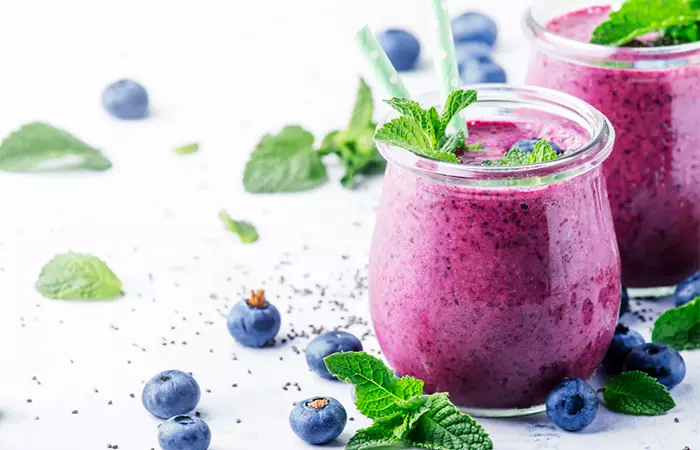
Ingredients
- 2 tablespoons of chia seeds
- 1 1/2 cups of almond milk
- 1 cup of blueberries
- 1 teaspoon of pure vanilla extract
- 1 tablespoon of coconut oil or coconut butter
- A pinch of cinnamon
- 1 tablespoon of raw honey
Directions
- Add the chia seeds to a jar along with half a cup of almond milk. Stir well.
- Keep the mixture aside for about 10 minutes. You can also refrigerate it for about 4 hours.
- Transfer the entire mixture to a blender. To this, add blueberries, vanilla extract, coconut oil (or coconut butter), and cinnamon.
- Blend until it is smooth.
- You can add honey to taste.
You can replace the all-purpose flour in your recipes with milled chia seeds. Use milled chia seeds to thicken soups, in baking, or even mix it with bread crumbs to coat chicken and fish.
We have seen the great chia seeds health benefits and the ways you can include them in your diet. How about a few fun facts?
Chia Seeds Side Effects
Yes. Chia seeds are probably the best thing out there. But they still do have their share of side effects.
1. Gastrointestinal Problems
These are the most common side effects of chia seeds. These can include constipation, hard stools, and bloating (37). These can be easily prevented or relieved by starting with a very small amount (½-1 teaspoon per serving) and gradually increasing to the desired amount. This allows the gut bacteria to adjust accordingly.
Chia Seeds During Pregnancy
The seeds are one of the few foods that provide all the essential nutrients required during pregnancy.
1. Protein, Calcium, And Iron
The nutrient needs of a pregnant woman are more than any other person. This is simply because she needs to support the growth of the baby. Protein and calcium are more important during pregnancy as they aid the development of tissues and bone growth.
Iron is another important mineral as the blood needs of the mother and baby increase during this period.
Finding a single food that can take care of all these needs can be taxing, unless you have a pack of chia seeds at your home.
A single serving of chia seeds offers a pregnant woman about 15% of her daily protein needs, a third of her daily fiber needs, and almost all of her additional calorie needs during the first trimester.
2. Omega-3 Fatty Acids
The omega-3 fatty acids in chia seeds are particularly essential for the baby’s brain function. Yes, salmon and other fish oil supplements can offer the required omega-3s – but the speculated mercury levels in fish oil make most women skeptical. The best solution? Chia seeds.
3. Other Chia Seeds Benefits
Chia seeds also replenish lost nutrients and keep the mother and the baby in their best health. The seeds also slow down sugar absorption, which might lead to spikes in blood sugar levels that have been linked to high birth weight and preeclampsiai A pregnancy condition marked by hypertension, which results in fluid retention and the presence of protein in urine. .
The seeds also have shown to help treat constipation in pregnant women.
As previously mentioned, chia seeds are often confused with basil seeds due to their similar appearance and texture. But the two are different. Learn more in the next section.
Basil Seeds Vs. Chia Seeds
While they may appear similar, basil and chia seeds differ in several aspects. Basil seeds are elliptical in shape and totally black, while chia seeds are oval and comprise a mix of black, gray, and white seeds.
Further, one can consume chia seeds raw or soaked. They do not have any distinct taste, which is why they can be used in various dishes without affecting the overall flavor. On the other hand, basil seeds can only be consumed after soaking them in water, and they have a mild flavor akin to that of the herb. Hence, they can be used only in dishes that complement their flavor.
Infographic: Other Chia Seed Facts You Should Know
Chia seeds are notable for their rich protein and omega 3-fatty acid profile. There are few plant-based foods with a nutritional profile and history as extensive as these seeds. That said, many other intriguing facts about chia seeds are still relatively unknown.
Check out the infographic below to discover some fun and interesting facts about chia seeds that will make you appreciate them even more.
Some thing wrong with infographic shortcode. please verify shortcode syntax
Chia seeds are considered superfoods for their exceptional therapeutic uses. The many benefits of chia seeds can be attributed to their fiber, vitamins, minerals, and omega-3 fats. The seeds may stimulate weight loss, prevent constipation, regulate blood sugar levels, fight against breast cancer cells, boost metabolism, and combat depression. You can incorporate whole chia seeds into your diet or even take them in their powdered or soaked forms. However, they may cause bloating and hard stools in some people. Hence, consume them in moderation.
Frequently Asked Questions
Can chia seeds help with hydration?
Yes, chia seeds are an excellent addition to your hydration plan because they can absorb up to 15 times their weight in water (1). If you soak chia seeds in water or add them to smoothies, they can help you stay hydrated while you eat. Their large water-holding capacity aids in maintaining both fluid balance and hydration levels all day long.
Can I substitute chia seeds for flax seeds?
Yes, you can. The two types of seeds can be a nutritious addition to your daily diet. If you don’t have one of these seed types, you can use the other. Both have a gel-forming ability and contain similar amounts of numerous nutrients.
Can chia seeds be eaten raw?
Yes – and one of the most common ways of eating the seeds raw is sprinkling or mixing them with other dishes.
Can I drink chia seeds in yogurt?
Yes, you can add raw chia seeds to yogurt and have it along with your meal.
Is basil seeds the same as chia seeds?
There are numerous differences, the significant difference being the method of consumption. Chia seeds can be eaten raw, but basil seeds cannot be eaten without preparation. Basil seeds are tiny and round, while chia seeds are a little larger and oval in shape.
Are chia seeds legumes?
No. They are just seeds.
Can chia seeds be included in the Paleo diet?
Yes, the seeds can be included in the Paleo diet. But ensure you restrict the quantity to a minimum.
Does hot water destroy chia seeds?
Yes, soaking chia seeds in boiling water may cause them to lose their nutritional value. You can instead soak them in cold water before consuming them.
Is it better to chew or swallow chia seeds?
You can either chew them whole or mix them with water or milk and swallow them in the morning as per your preference.
A superfood indeed, isn’t it? With nutritional value of chia seeds and ease of consumption, they can benefit you in multiple ways. Buy a pack of chia seeds today and stock in your kitchen – of course, it’s never too early to think of health, isn’t it?
Tell us how this post on chia seeds benefits has helped you. Do comment in the box below.
Illustration: Benefits Of Chia Seeds, How To Use, Recipes, & Side Effects
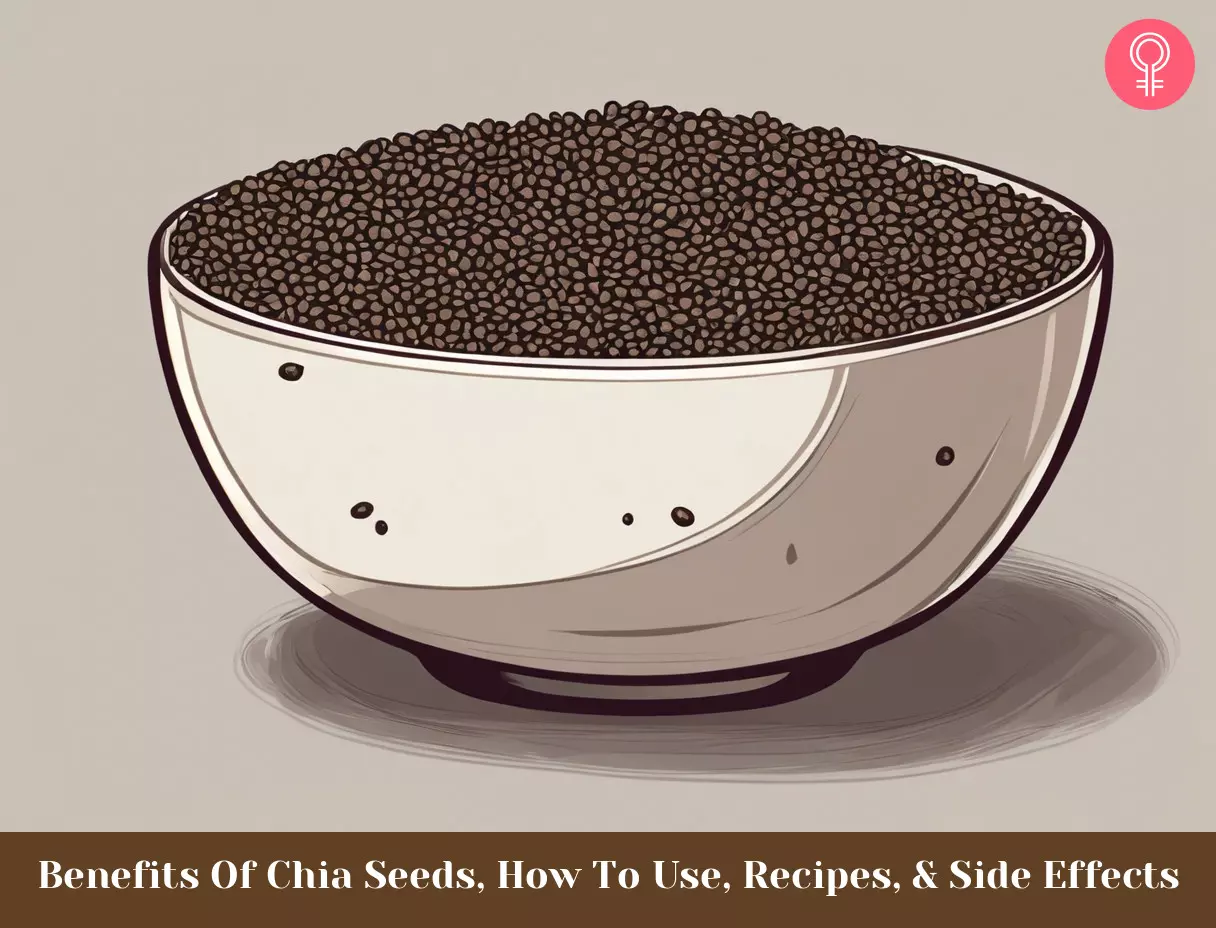
Image: Stable Diffusion/StyleCraze Design Team
Looking to shed those extra pounds? Explore the incredible benefits of chia seeds for weight loss in this informative video and get started on your fitness journey.
Personal Experience: Source
StyleCraze's articles are interwoven with authentic personal narratives that provide depth and resonance to our content. Below are the sources of the personal accounts referenced in this article.
i. I ate 10 lbs. of chia seeds in 40 days. Here are my results.https://medium.com/@ombyum/i-ate-10lbs-of-chia-seeds-in-40-days-here-are-my-results-b8117b6e43da
References
Articles on StyleCraze are backed by verified information from peer-reviewed and academic research papers, reputed organizations, research institutions, and medical associations to ensure accuracy and relevance. Read our editorial policy to learn more.
- The Current State of Knowledge on Salvia hispanica and Salviae hispanicae semen (Chia Seeds)
https://www.ncbi.nlm.nih.gov/pmc/articles/PMC8877361/ - Nutritional and therapeutic perspectives of Chia (Salvia hispanica L.): a review
https://www.ncbi.nlm.nih.gov/pmc/articles/PMC4926888/ - Long-Term Dietary Intake of Chia Seed Is Associated with Increased Bone Mineral Content and Improved Hepatic and Intestinal Morphology in Sprague-Dawley Rats
https://www.ncbi.nlm.nih.gov/pmc/articles/PMC6073254/ - Chia seed (Salvia Hispanica L.) added yogurt reduces short-term food intake and increases satiety: randomised controlled trial
https://www.ncbi.nlm.nih.gov/pmc/articles/PMC5621364/ - Chia induces clinically discrete weight loss and improves lipid profile only in altered previous values
https://pubmed.ncbi.nlm.nih.gov/25726210/ - The effects of consuming frequent higher protein meals on appetite and satiety during weight loss in overweight/obese men
https://pubmed.ncbi.nlm.nih.gov/20847729/ - Health benefits of dietary fiber
https://pubmed.ncbi.nlm.nih.gov/19335713/ - The Influence of Two Types of Chia Seed on Some Physiological Parameters in Diabetic Rats
https://www.researchgate.net/publication/341992891_The_Influence_of_Two_Types_of_Chia_Seed_on_Some_Physiological_Parameters_in_Diabetic_Rats - Chia seed ( Salvia hispanica L.) supplementation to the diet of adults with type 2 diabetes improved systolic blood pressure: A randomized controlled trial
https://pubmed.ncbi.nlm.nih.gov/33530854/ - The Chemical Composition and Nutritional Value of Chia Seeds—Current State of Knowledge
https://www.ncbi.nlm.nih.gov/pmc/articles/PMC6627181/ - Nutrition & Breast Cancer
https://cancer.ucsf.edu/sites/cancer.ucsf.edu/files/_docs/crc/nutrition_breast.pdf - Processing and Physical Properties of Chia-Oat Hydrocolloids
https://www.researchgate.net/publication/259552792_Processing_and_Physical_Properties_of_Chia-Oat_Hydrocolloids - Ground chia seed and chia oil effects on plasma lipids and fatty acids in the rat
https://www.researchgate.net/publication/247204895_Ground_chia_seed_and_chia_oil_effects_on_plasma_lipids_and_fatty_acids_in_the_rat - Effect of chia seed (Salvia hispanica L.) consumption on cardiovascular risk factors in humans: a systematic review
https://scielo.isciii.es/pdf/nh/v32n5/06revision04.pdf - Omega-3 fatty acids and cardiovascular disease
https://pubmed.ncbi.nlm.nih.gov/25720716/ - Dietary chia seeds (Salvia hispanica) improve acute dyslipidemia and steatohepatitis in rats
https://pubmed.ncbi.nlm.nih.gov/31489674/ - Dietary Salba (Salvia hispanica L) seed rich in α-linolenic acid improves adipose tissue dysfunction and the altered skeletal muscle glucose and lipid metabolism in dyslipidemic insulin-resistant rats
https://pubmed.ncbi.nlm.nih.gov/24120122/ - Chia seed (Salvia hispanica L.) effects and their molecular mechanisms on unbalanced diet experimental studies: A systematic review
https://pubmed.ncbi.nlm.nih.gov/31972052/ - Chia Seed Shows Good Protein Quality Hypoglycemic Effect and Improves the Lipid Profile and Liver and Intestinal Morphology of Wistar Rats
https://pubmed.ncbi.nlm.nih.gov/27193017/ - A high-protein diet induces sustained reductions in appetite ad libitum caloric intake and body weight despite compensatory changes in diurnal plasma leptin and ghrelin concentrations
https://academic.oup.com/ajcn/article/82/1/41/4863422?login=true - Isolation and Characterization of Proteins from Chia Seeds (Salvia hispanica L.)
https://pubs.acs.org/doi/abs/10.1021/jf3034978 - Serum omega-3 fatty acids are associated with variation in mood personality and behavior in hypercholesterolemic community volunteers
https://pubmed.ncbi.nlm.nih.gov/17383013/ - Changes in the nutritional composition and antioxidant capacity of chia seeds (Salvia hispanica L.) during germination process
https://www.ncbi.nlm.nih.gov/pmc/articles/PMC7256148/ - Antioxidant potential of dietary chia seed and oil (Salvia hispanica L.) in diet-induced obese rats
https://pubmed.ncbi.nlm.nih.gov/28455051/ - Nutritional strategies for skeletal and cardiovascular health: hard bones soft arteries rather than vice versa
https://www.ncbi.nlm.nih.gov/pmc/articles/PMC4809188/ - Vitamin D deficiency bone turnover markers and causative factors among adolescents: a cross-sectional study
https://www.ncbi.nlm.nih.gov/pmc/articles/PMC5062858/ - Dietary phosphorus in bone health and quality of life
https://pubmed.ncbi.nlm.nih.gov/22646125/ - Antioxidant-Rich Natural Raw Materials in the Prevention and Treatment of Selected Oral Cavity and Periodontal Diseases
https://www.ncbi.nlm.nih.gov/pmc/articles/PMC8614929/ - Omega-3 polyunsaturated fatty acids: photoprotective macronutrients
https://pubmed.ncbi.nlm.nih.gov/21569104/ - Anti-inflammatory potential of chia seeds oil and mucilage against adjuvant-induced arthritis in obese and non-obese rats
https://pubmed.ncbi.nlm.nih.gov/32134733/ - Dietary fibre intake and the risk of diverticular disease: a systematic review and meta-analysis of prospective studies
https://www.ncbi.nlm.nih.gov/pmc/articles/PMC7058673/ - Chia (Salvia hispanica L.) Seed Total Protein and Protein Fractions Digests Reduce Biomarkers of Inflammation and Atherosclerosis in Macrophages In Vitro
https://pubmed.ncbi.nlm.nih.gov/31343098/ - Salvia hispanica Seed (Code C124994)
https://ncit.nci.nih.gov/ncitbrowser/ConceptReport.jsp?dictionary=NCI%20Thesaurus&code=C124994 - Manganese in Health and Disease
https://www.ncbi.nlm.nih.gov/pmc/articles/PMC6589086/ - Magnesium
https://ods.od.nih.gov/factsheets/Magnesium-HealthProfessional/ - The Chemical Composition and Nutritional Value of Chia Seeds—Current State of Knowledge
https://www.ncbi.nlm.nih.gov/pmc/articles/PMC6627181/ - L-Tryptophan: Basic Metabolic Functions Behavioral Research and Therapeutic Indications
https://www.ncbi.nlm.nih.gov/pmc/articles/PMC2908021/ - Safety of chia seeds (Salvia hispanica L.) as a novel food for extended uses pursuant to Regulation (EU) 2015/2283
https://www.ncbi.nlm.nih.gov/pmc/articles/PMC7009096/
Read full bio of Dr. Karyn Shanks
- Alicia Chacha Miller is a Registered Dietitian specializing in maternal and pediatric nutrition. She obtained her Master's degree in Nutrition Sciences from the University of Southern California. Her work is focused on bridging the gap in health disparities between BIPOC (Black, Indigenous, and People of Color) and other races by making nutrition education available, accessible, and easy to understand. She is the founder of The Cardamom Nutrition, where evidence-based practice, diversity, inclusion, cultural competence, and compassion all collide.
 Alicia Chacha Miller is a Registered Dietitian specializing in maternal and pediatric nutrition. She obtained her Master's degree in Nutrition Sciences from the University of Southern California. Her work is focused on bridging the gap in health disparities between BIPOC (Black, Indigenous, and People of Color) and other races by making nutrition education available, accessible, and easy to understand. She is the founder of The Cardamom Nutrition, where evidence-based practice, diversity, inclusion, cultural competence, and compassion all collide.
Alicia Chacha Miller is a Registered Dietitian specializing in maternal and pediatric nutrition. She obtained her Master's degree in Nutrition Sciences from the University of Southern California. Her work is focused on bridging the gap in health disparities between BIPOC (Black, Indigenous, and People of Color) and other races by making nutrition education available, accessible, and easy to understand. She is the founder of The Cardamom Nutrition, where evidence-based practice, diversity, inclusion, cultural competence, and compassion all collide.
Read full bio of Ravi Teja Tadimalla
Read full bio of Arshiya Syeda
Read full bio of Sindhu Koganti







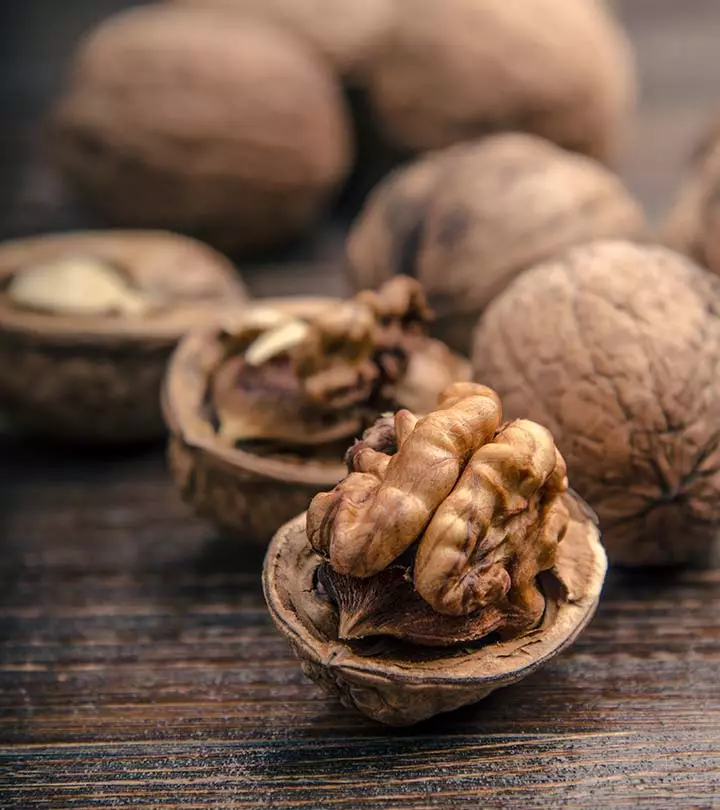
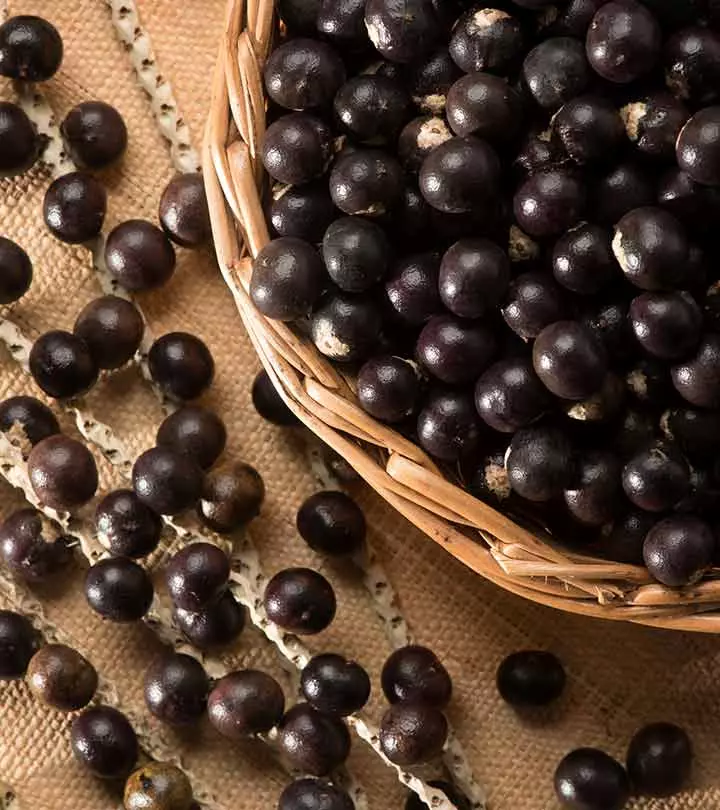
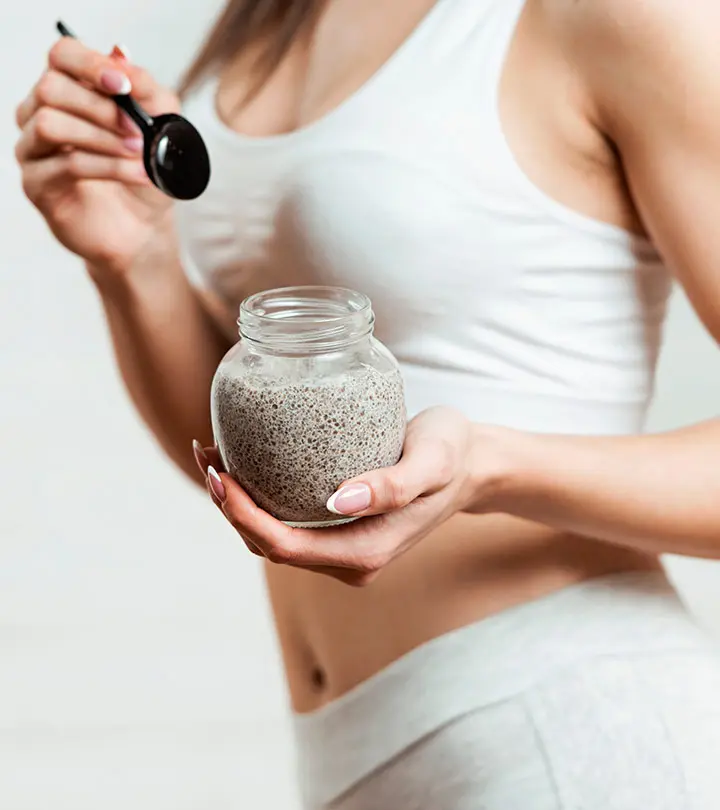

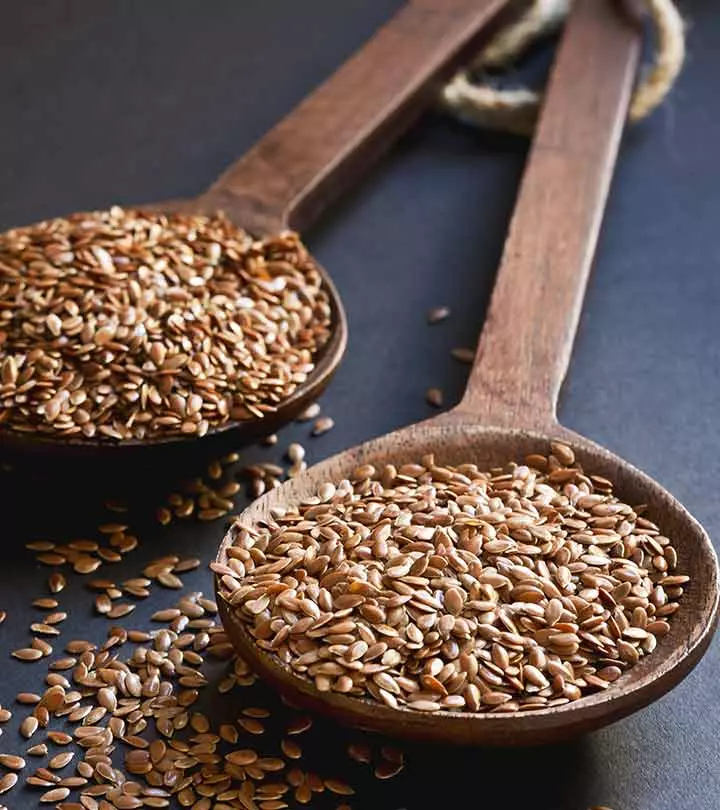
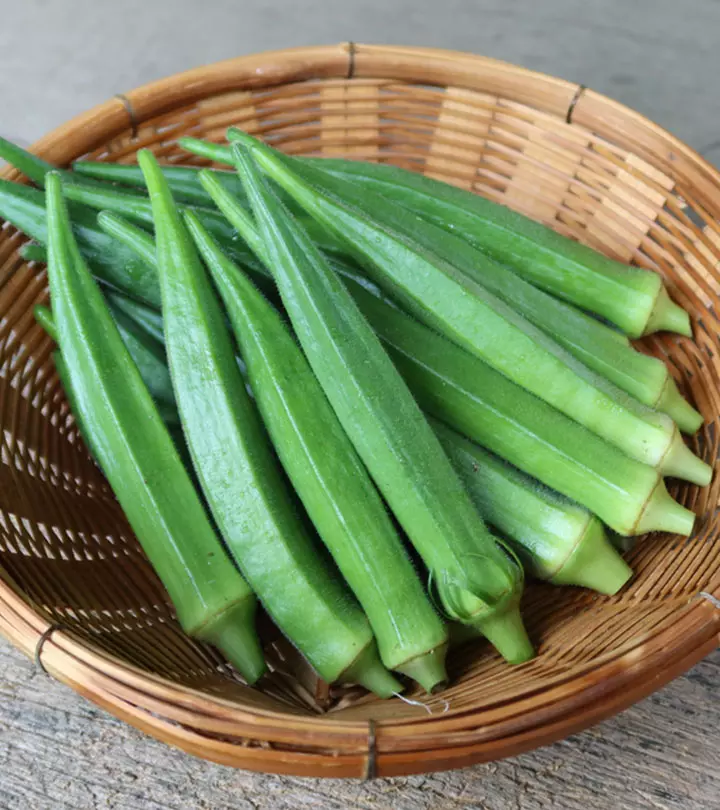
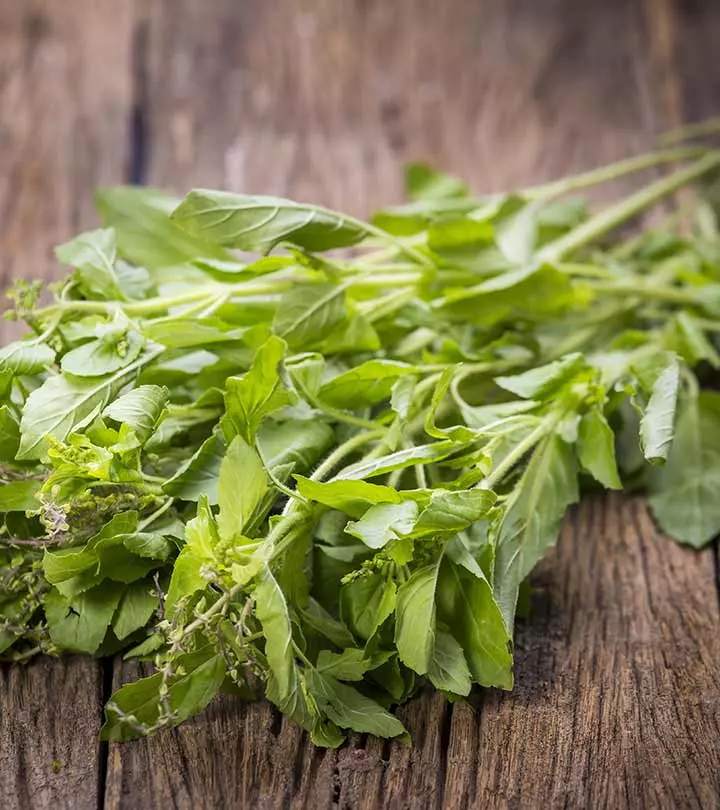
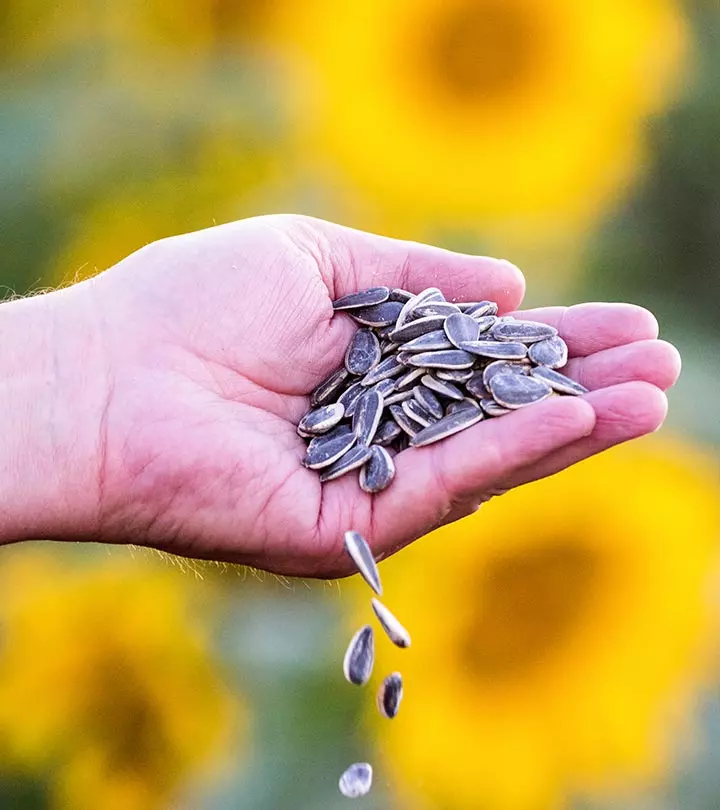
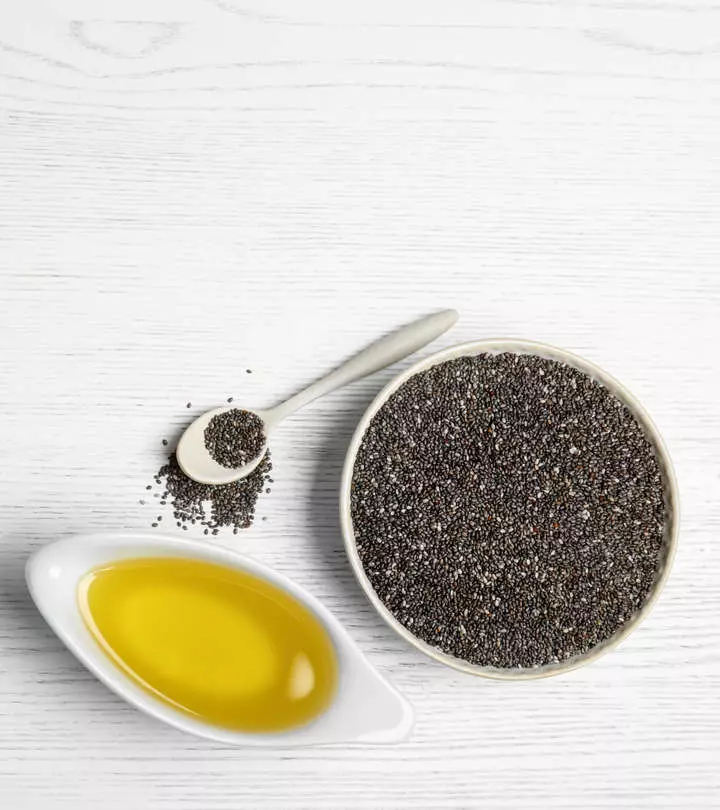

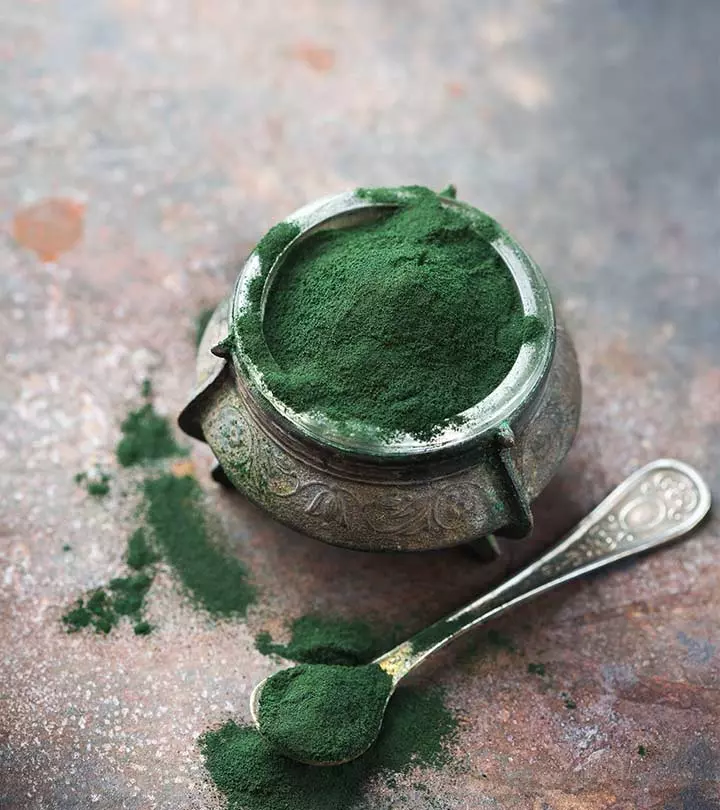

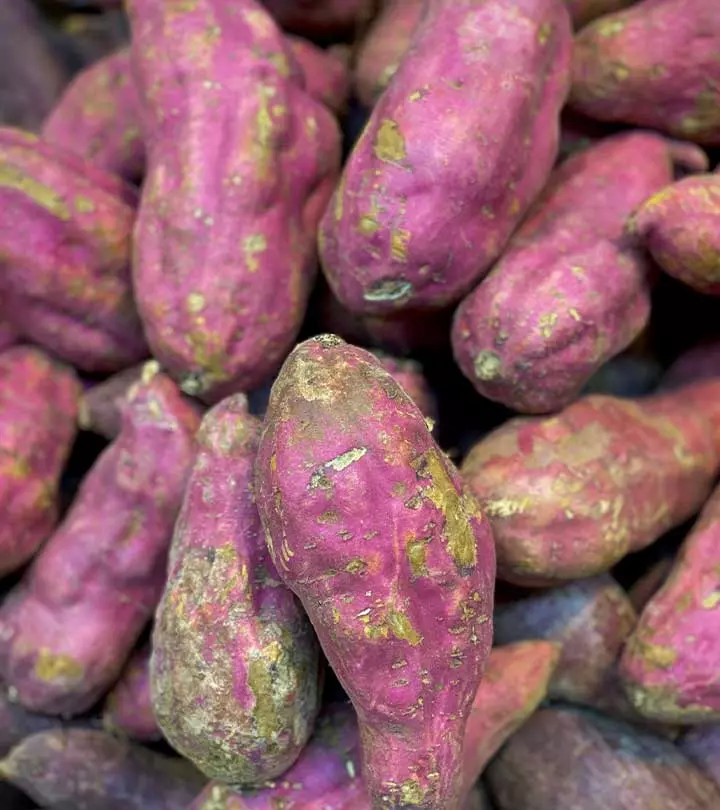
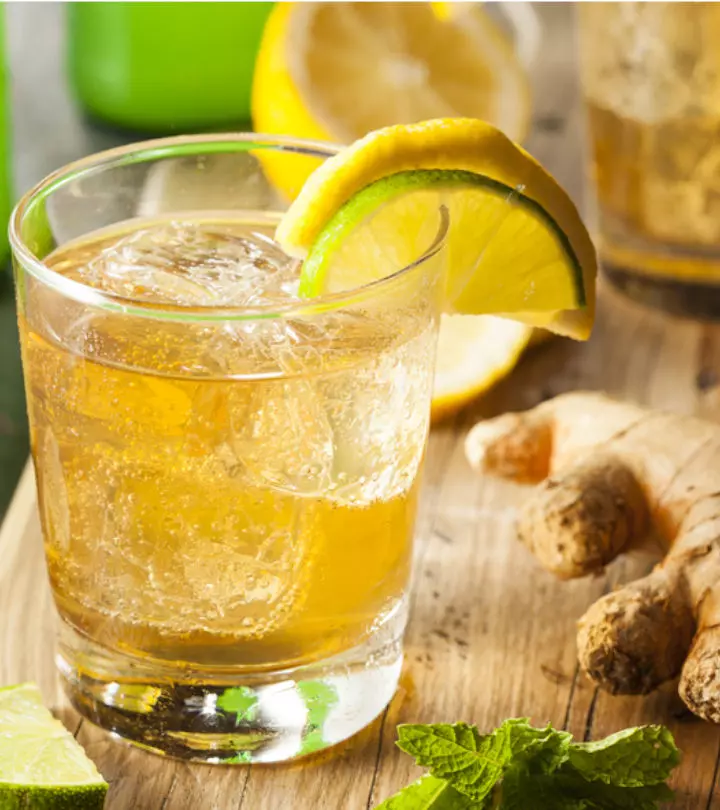
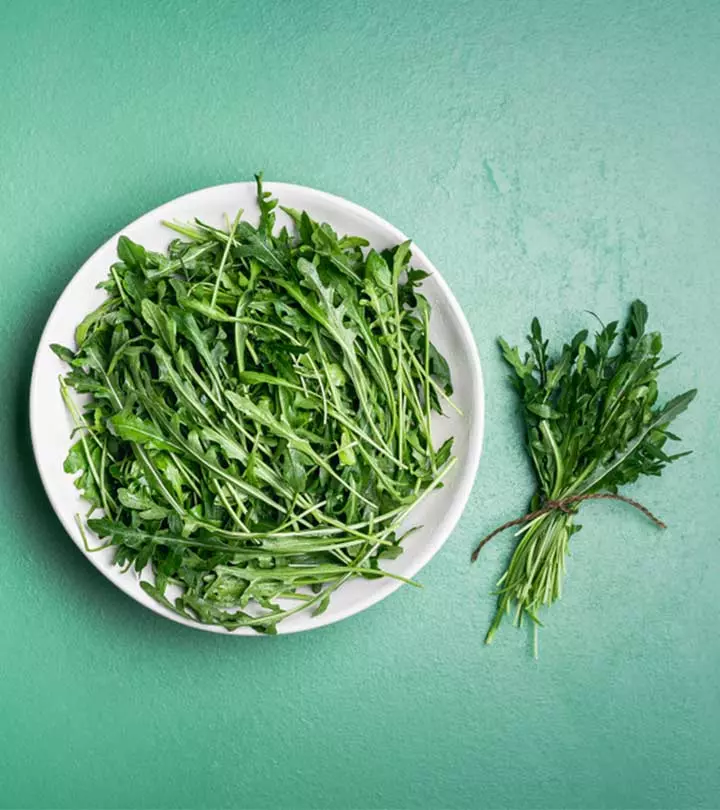
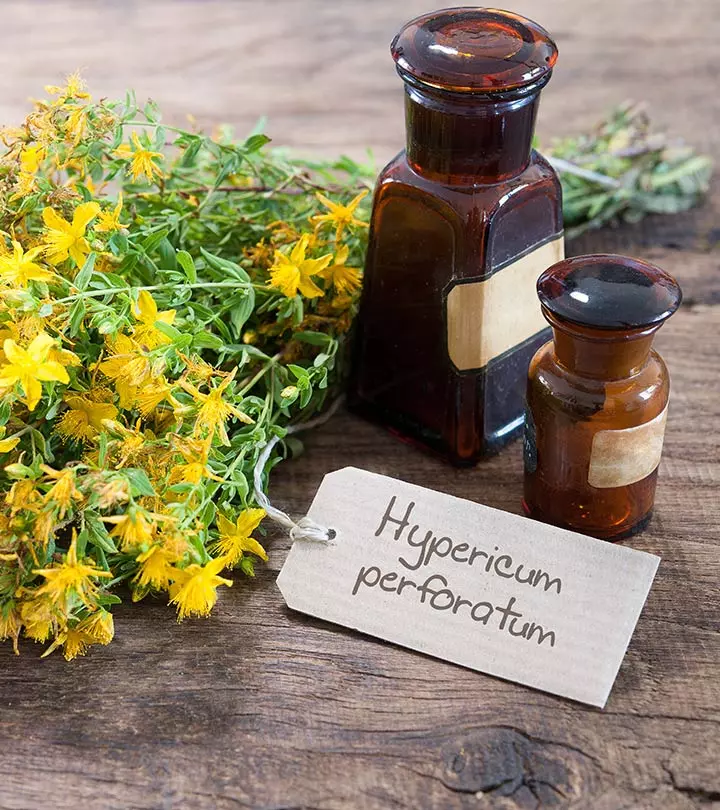

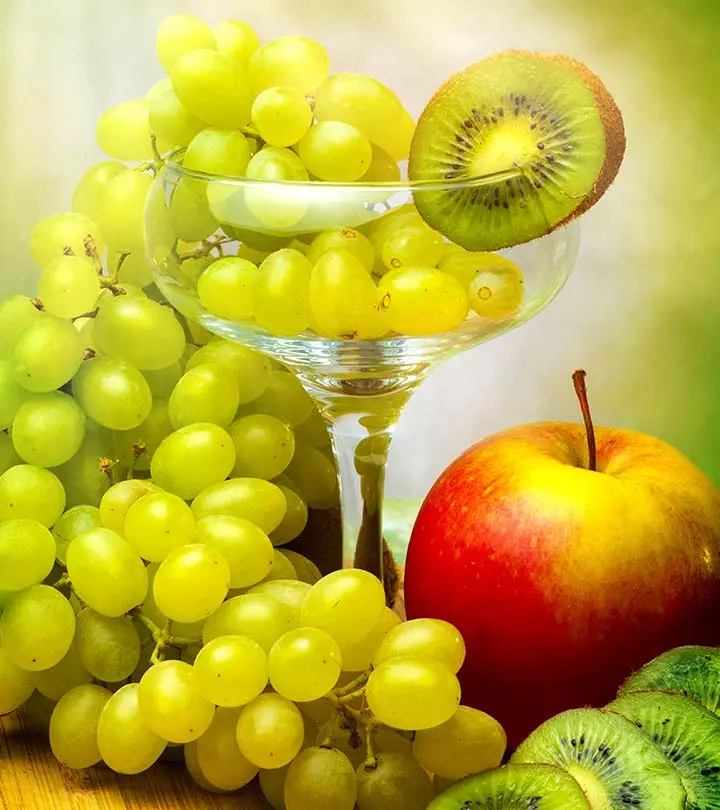
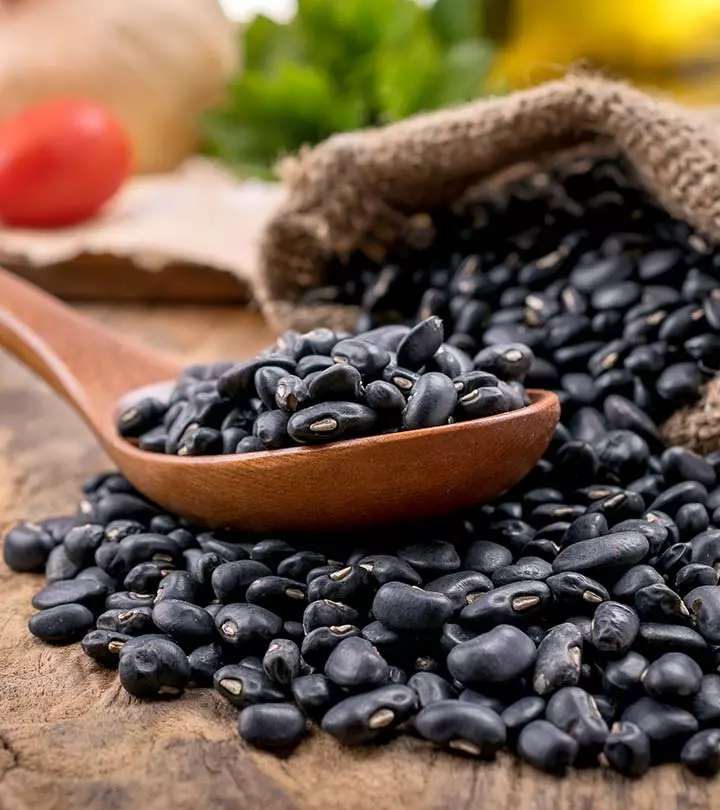
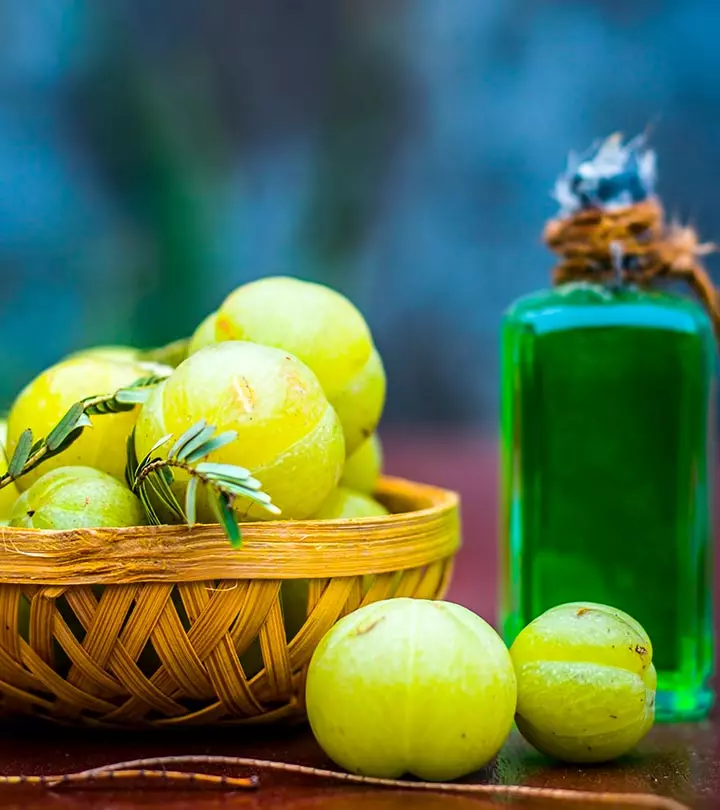
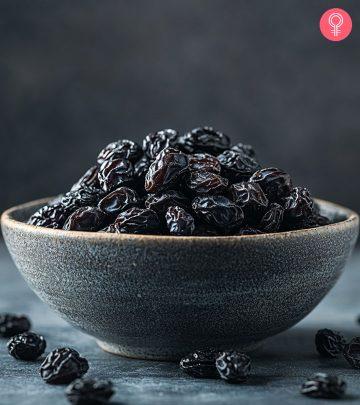
Community Experiences
Join the conversation and become a part of our empowering community! Share your stories, experiences, and insights to connect with other beauty, lifestyle, and health enthusiasts.